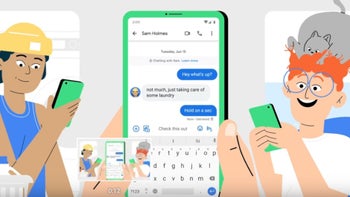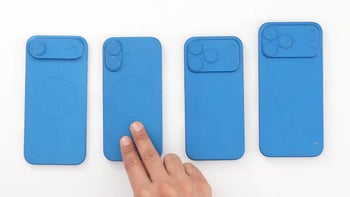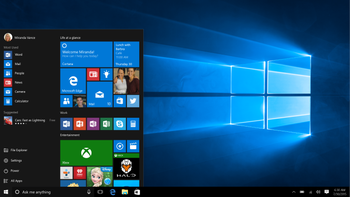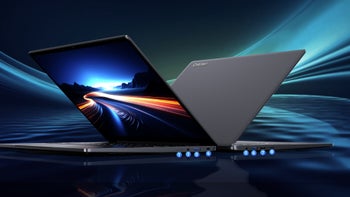RCS becomes a little more Apple-flavored after adding end-to-end encryption

When Google first started disseminating Rich Communication Services (RCS) to Android users, Google tried to copy several iMessage features. Because it uses a data hook up instead of a cellular connection, RCS can deliver much larger messages (8,000 characters up from 160), handle larger video and image files, show read receipts and more.
End-to-end encryption is rolling out now for Rich Communication Services (RCS)
One thing that RCS didn't have that iMessage did was end-to-end encryption. With this feature, a message you send could only be read by the recipient. In May 2020, the buzz around the water cooler was that Google was testing end-to-end encryption for RCS and today the beta label was removed.


As Google Senior Vice President Hiroshi Lockheimer (@lockheimer) posted on Twitter today, one to one messages on RCS now are equipped with end-to-end encryption. Keep in mind that this means group messages are not included. The first bunch of RCS users to get the feature are those who had not opted into the Google Messages beta indicating that this could be part of a new wide RCS rollout.
For end-to-end encryption to work with RCS, both ends of the conversation need to have RCS enabled, and you'll know if a message you're sending is encrypted end-to-end if you see a lock icon on the send button.
Little by little, Google is trying to end the blue bubble jealousy that Android users have suffered with through the years. If two RCS users are exchanging a chat, both will have blue text bubbles just like when an iPhone user is sending an iMessage to another iPhone user.
Originally, all of the major carriers were going to be involved in the Cross Carrier Messaging Initiative (CCMI) allowing each wireless provider to offer a single new RCS app. Ironically, Google was not part of the CCMI which seemed strange in the first place considering that RCS was its baby.
And earlier this year, the CCMI was canceled as Verizon said, "The owners of the Cross Carrier Messaging Initiative decided to end the joint venture effort. However, the owners remain committed to enhancing the messaging experience for customers including growing the availability of RCS."
T-Mobile also released a statement at the time that stated, "We're committed to delivering RCS interoperability and are working with other providers to make it happen. T-Mobile customers with Android devices can currently enjoy RCS messaging across our network as well as with many other customers worldwide by interoperating with Google."
The Cross Carrier Messaging Initiative that would have allowed the major U.S. carriers to work on RCS as a team has been canceled
The major U.S. carriers were hoping to profit from the monetization of the CCMI by allowing their customers to chat with their favorite brands without having to switch apps. Users would be able to schedule appointments, pay bills, order a ride share and more through RCS thanks to the CCMI.
Analyst Lynnette Luna of GlobalData noted that RCS is really important to Google, but pointed out that because of Apple's iMessage platform, there is no reason for Apple to get involved in RCS, and Apple has half of the U.S. smartphone market. She did say that Google continues to push RCS in the U.S. and that is because the company hopes to make money by pushing business to consumer ads.
Luna added at the time that she didn't expect Verizon, AT&T or T-Mobile to make a big push for RCS in the states. Consider though that in Japan, 60% of RCS messages are clicked on compared to the 0.001% that click on mobile banner ads. You can understand why Google has such high hopes for RCS as a platform for business.
And with 1 to 1 chats now encrypted end-to-end, Google could still use RCS to pad the top line some more.










Things that are NOT allowed: